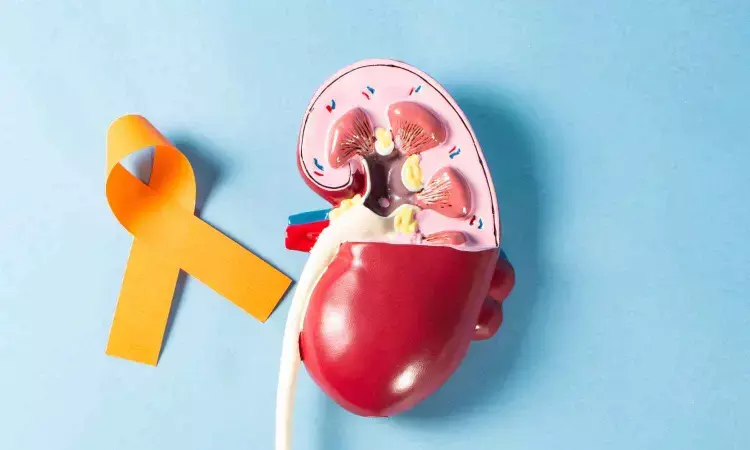- Home
- Medical news & Guidelines
- Anesthesiology
- Cardiology and CTVS
- Critical Care
- Dentistry
- Dermatology
- Diabetes and Endocrinology
- ENT
- Gastroenterology
- Medicine
- Nephrology
- Neurology
- Obstretics-Gynaecology
- Oncology
- Ophthalmology
- Orthopaedics
- Pediatrics-Neonatology
- Psychiatry
- Pulmonology
- Radiology
- Surgery
- Urology
- Laboratory Medicine
- Diet
- Nursing
- Paramedical
- Physiotherapy
- Health news
- Fact Check
- Bone Health Fact Check
- Brain Health Fact Check
- Cancer Related Fact Check
- Child Care Fact Check
- Dental and oral health fact check
- Diabetes and metabolic health fact check
- Diet and Nutrition Fact Check
- Eye and ENT Care Fact Check
- Fitness fact check
- Gut health fact check
- Heart health fact check
- Kidney health fact check
- Medical education fact check
- Men's health fact check
- Respiratory fact check
- Skin and hair care fact check
- Vaccine and Immunization fact check
- Women's health fact check
- AYUSH
- State News
- Andaman and Nicobar Islands
- Andhra Pradesh
- Arunachal Pradesh
- Assam
- Bihar
- Chandigarh
- Chattisgarh
- Dadra and Nagar Haveli
- Daman and Diu
- Delhi
- Goa
- Gujarat
- Haryana
- Himachal Pradesh
- Jammu & Kashmir
- Jharkhand
- Karnataka
- Kerala
- Ladakh
- Lakshadweep
- Madhya Pradesh
- Maharashtra
- Manipur
- Meghalaya
- Mizoram
- Nagaland
- Odisha
- Puducherry
- Punjab
- Rajasthan
- Sikkim
- Tamil Nadu
- Telangana
- Tripura
- Uttar Pradesh
- Uttrakhand
- West Bengal
- Medical Education
- Industry
C3 Granulopathy during pregnancy tied to higher preeclampsia and premature births: Study

A new study published in the journal of BMC Nephrology showed that C3 Granulopathy + pregnancy is linked to a higher risk of preeclampsia and premature birth compared to healthy pregnancies, though it does not increase the risk of spontaneous miscarriage. Additionally, a mild but significant decline in renal function (as indicated by creatinine and eGFR levels) is observed. These findings highlight the importance of multidisciplinary care for pregnant patients with C3G due to the elevated risks of adverse renal and obstetric outcomes.
The ultra-rare glomerular illness known as C3 Glomerulopathy (C3G) is caused by deregulation of the alternative complement system. Within ten years of diagnosis, between 30 and 50 percent of adult patients develop end-stage kidney disease (ESKD). The results for women who become pregnant while suffering from C3 Glomerulopathy (C3G) are little understood. The ultra-rare nature of C3G and the relatively recent realization that the illness encompasses much more than dense deposit disease (DDD) or membranoproliferative glomerulonephritis type II (MPGN II) are reflected in this knowledge gap.
The objectives of this study were to objectively describe the pregnancy outcomes for patients with C3G, identify potential risk factors or conditions that could lead to adverse events for the mother or the unborn child during and after pregnancy, and generate data that nephrologists could use to advise patients and their families about pregnancy in the context of C3G, better educating them about the risks involved.
Female participants with at least one pregnancy and adequate renal/obstetric data were included in the University of Iowa's C3G Natural History This study provided they satisfied consensus biopsy criteria. Clinical history, renal function tests, and complement testing were among the evaluated data in order to determine the inherited and/or acquired causes of complement dysregulation. The results and changes in clinical biomarkers before and after pregnancy were compared using the appropriate t-tests or z-tests. Risk for preeclampsia, early delivery, and progression to ESKD were estimated using nonlinear regression and relative risk.
There were 37 pregnancies and 27 births among moms whose C3G manifested either before or during pregnancy (C3G + P). When compared to healthy pregnancies and pregnancies of mothers with other glomerular disorders, 12 births (44%) were preterm, and 16 (59%) were linked to antepartum preeclampsia, an increased risk.
Preexisting hypertension, a known cause of complement dysregulation, and an eGFR of less than 60 ml/min/1.73 m2 before pregnancy were risk factors for problems. Additionally, these risk variables predict the development of ESKD within 5 (5/32, 16%) and 10 (6/32, 19%) years after pregnancy.
Mothers who had ESKD within five to ten years of becoming pregnant had considerably lower individual pre- and post-pregnancy eGFRs. Overall, C3G + P was linked to a slight but substantial decline in renal function, as evaluated by creatinine and eGFR. The increased risk of severe renal and obstetric outcomes highlights the importance of multidisciplinary treatment for pregnant individuals with C3G.
Source:
Fergus, L. O., Waldmann, M., Hall, M. D., Vining, L., Hall, J., Liu, T., Zhang, Y., Walker, P. J., Smith, R. J. H., & Nester, C. M. (2025). Pregnancy outcomes in C3 glomerulopathy: a retrospective review. BMC Nephrology, 26(1), 238. https://doi.org/10.1186/s12882-025-04118-y
Neuroscience Masters graduate
Jacinthlyn Sylvia, a Neuroscience Master's graduate from Chennai has worked extensively in deciphering the neurobiology of cognition and motor control in aging. She also has spread-out exposure to Neurosurgery from her Bachelor’s. She is currently involved in active Neuro-Oncology research. She is an upcoming neuroscientist with a fiery passion for writing. Her news cover at Medical Dialogues feature recent discoveries and updates from the healthcare and biomedical research fields. She can be reached at editorial@medicaldialogues.in
Dr Kamal Kant Kohli-MBBS, DTCD- a chest specialist with more than 30 years of practice and a flair for writing clinical articles, Dr Kamal Kant Kohli joined Medical Dialogues as a Chief Editor of Medical News. Besides writing articles, as an editor, he proofreads and verifies all the medical content published on Medical Dialogues including those coming from journals, studies,medical conferences,guidelines etc. Email: drkohli@medicaldialogues.in. Contact no. 011-43720751


